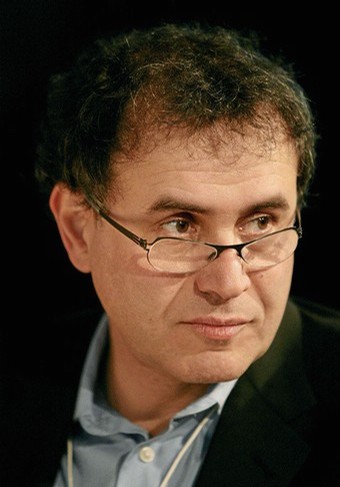Nouriel Roubini: How to Break Up the Banks, Stop Massive Bonuses, and Rein in Wall Street Greed
New York University economist Nouriel Roubini is the author of, most recently, "Crisis Economics: A Crash Course In The Future Of Finance."He is considered one of the most prominent and respected economists in the world. When both Wall Street bankers and Bush administration policymakers were insisting that everything was just fine, Roubini was warning about the most dire financial crisis since the Great Depression. In 2007, the financial elite laughed him off, but Roubini was vindicated by the crash of 2008. AlterNet economics editor Zach Carter recently spoke with Roubini about the financial crisis, the subsequent bailout, the financial reform bill moving through Congress, and the global economic outlook.
Zach Carter: How is the financial reform legislation going?
Nouriel Roubini: In my view, the financial reform bill goes in the right direction in terms of what needs to be done, but it doesn't go far enough in a number of dimensions. My view is that if banks are too big to fail, using higher capital charges and an insolvency regime is not going to work. If they're too big to fail, they're just too big, and they should be broken up.
If they're too big to fail, they're also becoming too big to be saved, too big to be bailed out, and too big to be managed. No CEO can monitor the activities of thousands of separate profit and loss statements, and the activities of thousands of different bankers and traders. So that's one dimension. We must be capable of going beyond the Volcker Rule, which is essentially Glass-Steagall-Lite. We need to go all the way and implement the kind of restrictions between commercial banking and investment banking that existed under Glass-Steagall.
ZC: Why do you see the Volcker Rule as insufficient? Why do we need Glass-Steagall?
Roubini: The Volcker Rule goes in the right direction, but in my view, the model of the financial supermarket where within one institution you have commercial banking, investment banking, underwriting of securities, market-making and dealing, proprietary trading, hedge fund activity, private equity activity, asset management, insurance—this model has been a disaster. The institution becomes too big to fail and too big to manage.
Continue Reading
